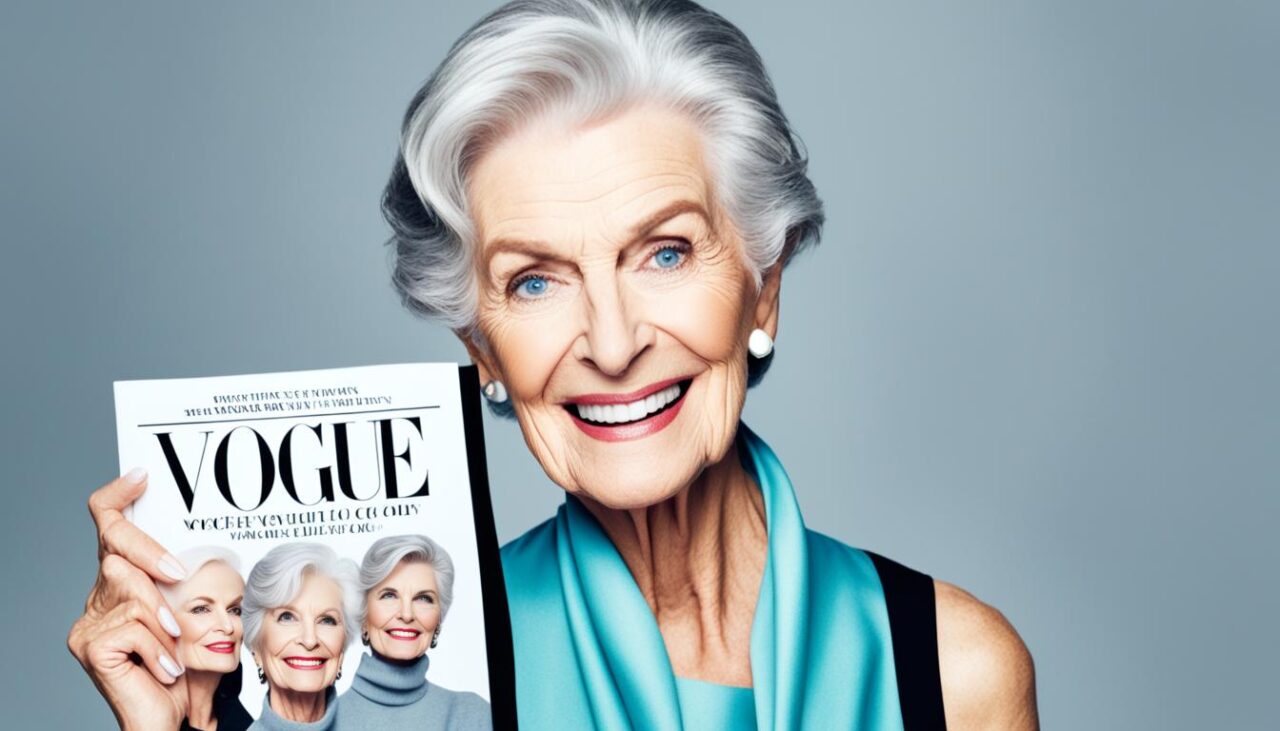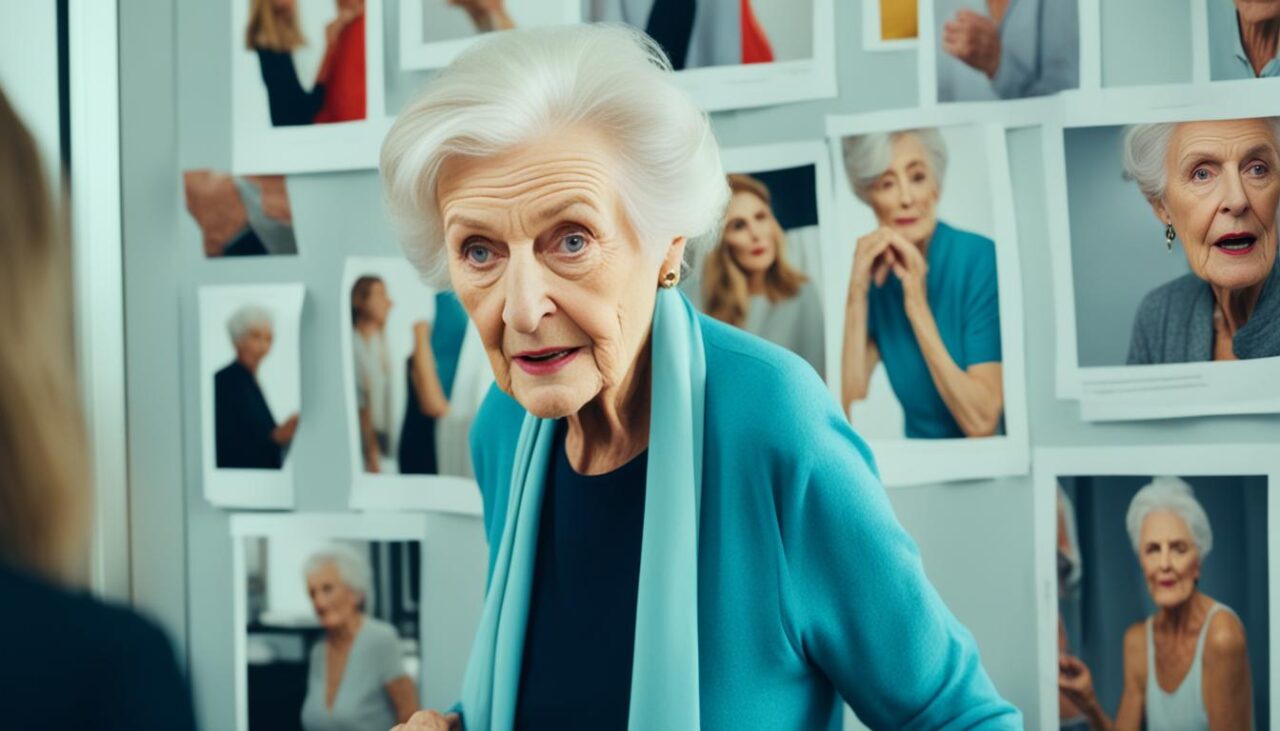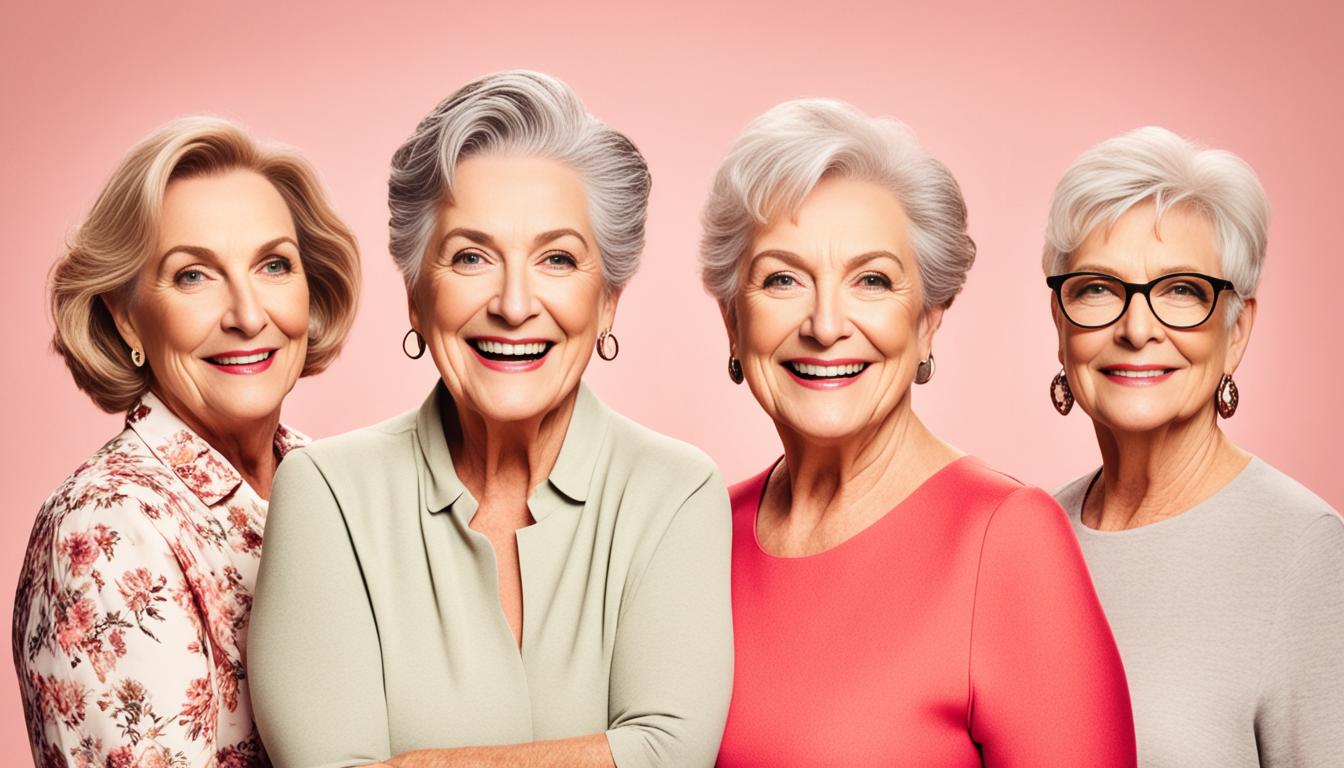In today's media landscape, the portrayal of age and beauty has become heavily influenced by societal standards. Unfortunately, these standards often perpetuate narrow beauty ideals that exclude older individuals. This phenomenon is known as ageism, a form of discrimination based on age.
Ageism has pervasive effects on the way society views and values older individuals, particularly when it comes to beauty. The media industry, in particular, plays a significant role in shaping these perceptions. From advertisements to movies and television shows, the images portrayed in media often adhere to a youthful and unrealistic standard of beauty.
This image shows how prevalent ageism is in media and the urgent need to confront and challenge these harmful narratives. The representation of beauty should not be limited to a specific age group. Instead, it should celebrate the diverse and timeless beauty that comes with age.
Positive aging is a concept that seeks to challenge ageist narratives and promote a more inclusive and realistic representation of aging. It emphasizes the importance of valuing and appreciating individuals of all ages, recognizing their unique experiences, and breaking down stereotypes associated with aging.
In the following sections, we will delve deeper into the topic of age and beauty in media, exploring the need to embrace age diversity and confront ageism head-on. By shifting the narrative surrounding aging, we can cultivate a more positive and empowering environment for individuals of all ages.
Embracing Age Diversity: Redefining Beauty Across Ages
In today's society, the concept of beauty has long been associated with youth. However, it is crucial to recognize that beauty transcends age. Embracing age diversity in media representations of beauty is not only essential for fostering inclusivity but also for challenging traditional beauty standards.
By showcasing a range of ages in media, we have the power to redefine beauty across generations. When we celebrate the unique features and experiences that come with age, we pave the way for a more inclusive and accepting society.

Media campaigns and initiatives that highlight age diversity play a significant role in reshaping the narrative around aging. Instead of perpetuating narrow beauty ideals, these initiatives encourage us to appreciate the diverse forms of beauty that exist across ages.
“Age diversity is not about looking younger or adhering to stereotypes. It is about embracing the beauty that comes with lived experiences and the wisdom gained over time.”
By featuring individuals of different ages in various forms of media, we gradually break down the barriers that limit our perception of beauty. This allows us to celebrate the wrinkles, the silver hair, and the unique charm that each stage of life brings.
Celebrating the Journey of Aging
One inspiring example of celebrating beauty across ages is the “Age Perfect” campaign by a renowned cosmetics brand. This campaign challenges ageism by showcasing mature women as the faces of their products, celebrating their natural beauty and confidence. By doing so, they redefine societal beauty standards and inspire individuals of all ages to embrace their own unique beauty.
It is essential to remember that beauty knows no age limit. Each stage of life brings its own charm and appeal, and embracing age diversity in media representations is a step towards recognizing and celebrating the beauty that exists across generations.
Confronting Ageism: Breaking Down Stereotypes and Biases
Ageism in media perpetuates harmful stereotypes and biases, which have a negative impact on society's perception of aging. It is essential to confront ageism head-on and challenge these detrimental portrayals.
Accurate and diverse representations of older individuals are crucial in dismantling ageist narratives. By showcasing the richness and complexity of aging experiences, we can break down stereotypes and encourage a more inclusive understanding of beauty.
“Ageism in media reinforces the notion that beauty and value decline with age. This harmful narrative not only marginalizes older individuals, but it also denies society the opportunity to appreciate the unique beauty that comes with maturity and wisdom.” – Dr. Jane Reynolds, Sociology Professor
Research and studies have shown the harmful effects of ageism in media. Exposure to ageist content can contribute to decreased self-esteem and well-being among older individuals. By confronting ageism, we can create a more positive and empowering media landscape for all ages.

Confronting ageism means challenging our own biases and advocating for inclusivity in media. By embracing diverse representations of aging, we can promote understanding, respect, and appreciation across generations.
Cultivating Positive Aging: Shifting the Narrative
In today's media landscape, it is crucial to cultivate a positive aging narrative that challenges ageism and celebrates the beauty that comes with age. Embracing positive aging not only promotes inclusivity but also has numerous benefits for mental health and well-being.
By showcasing diverse and authentic representations of aging individuals, media content can play a significant role in shifting the narrative surrounding age and beauty. Instead of perpetuating ageist stereotypes and biases, media can choose to uplift stories of resilience, wisdom, and personal growth.
There are inspiring examples of media campaigns, films, and advertisements that embrace positive aging and challenge ageist narratives. These initiatives feature older individuals in empowering roles, highlighting their unique experiences and valuable contributions to society. By doing so, they send a powerful message that beauty and vitality extend well beyond youth.
As the world becomes more aware of the negative effects of ageism, it is essential for media professionals, brands, and consumers to actively support and encourage positive aging. By reforming the media standards and embracing diversity across ages, we can create a future where every individual feels seen, valued, and celebrated for their unique beauty, regardless of age.

